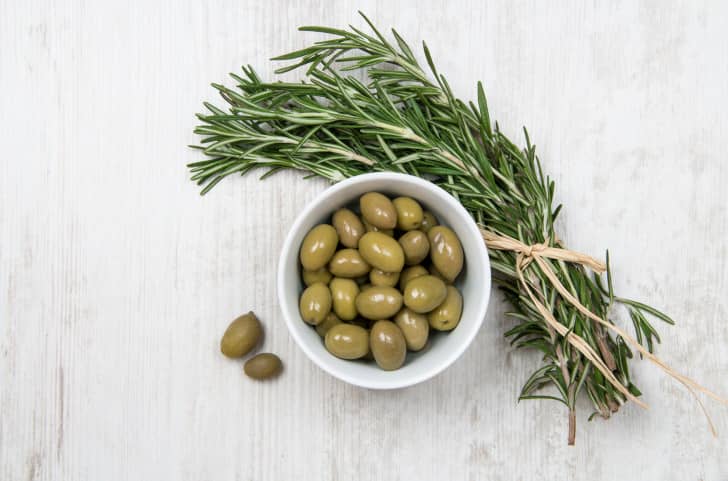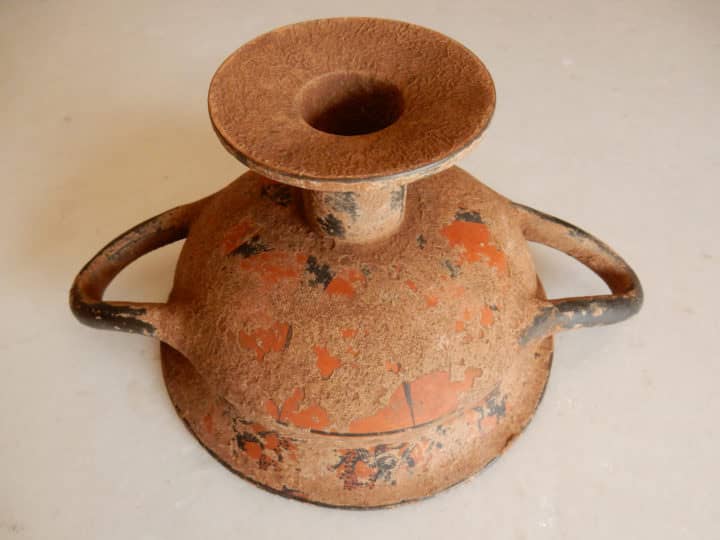 Greek cuisine is known for being both simple and tasty. Greek people are masters at creating simple and delicious dishes using fresh, local ingredients and this is a tradition that began in Ancient Greece. Food historians agree that Ancient Greek Cuisine is something that influenced culinary traditions throughout the world.
Greek cuisine is known for being both simple and tasty. Greek people are masters at creating simple and delicious dishes using fresh, local ingredients and this is a tradition that began in Ancient Greece. Food historians agree that Ancient Greek Cuisine is something that influenced culinary traditions throughout the world.
In order to understand Greek food of today, it helps to learn about its ancient roots. Much of what we know about food from Ancient Greece is derived from literature, art, and recovered artifacts.
The Olive Tree
Olive trees were important crops in Ancient Greece. According to legend, the goddess Athena gave Athens olive trees as a gift. In fact, Athena’s gift was selected by the people of Athens as being the best over Poseidon’s gift, which was the gift of water. Once her gift was chosen, Athena became the Patron Goddess of the city of Athens, according to the legends.
This shows how important olives were to the people of Ancient Greece. They ate the olives and also pressed the olives to make olive oil. Olive oil became highly prized and was traded to other countries. It was so important to the economy in Ancient Greece that people referred to it as “liquid gold”.
Greek Wine
 Wine was also another important part, the Ancient Greek table. There’s evidence that the Greeks were producing red, rose, and white wines – the same basic types of wines that are produced today. Back then, the people usually mixed wine with water to produce a thinner drink to accompany meals. They not only drank it as a beverage, but also used wine for medicine.
Wine was also another important part, the Ancient Greek table. There’s evidence that the Greeks were producing red, rose, and white wines – the same basic types of wines that are produced today. Back then, the people usually mixed wine with water to produce a thinner drink to accompany meals. They not only drank it as a beverage, but also used wine for medicine.
Wine has been produced in Greece since around 4500 B.C. At the time, the Greeks loved wine so much, they even worshipped Dionysius, who was the god of wine. The wine culture established by the Ancient Greeks has heavily influenced our wine culture of today.
Meals in Ancient Greece
The Ancient Greeks followed the same meal schedule as we do today. Generally, they ate breakfast, lunch, and dinner with an occasional snack. Pancakes, or tiganithes, were a popular breakfast and were made from wheat or barley flour, curdled milk, and olive. Lunch often consisted of cheese, fruits and vegetables, eggs, or fish. Dinner was more elaborate and included things like meat, breads, vegetables, fruits, and occasionally sweets following the meal.
The Greeks worshipped a goddess named Hestia, who was concerned to be the goddess of the hearth. As part of their regular mealtime practice, the Ancient Greeks would reserve a portion of their meals as a gift to Hestia.
Eating at Home
 Ancient Greece was a patriarchal society and this was reflected in how the meals were served. Men and women didn’t even eat together and often, men were given best food. In fact, the men actually ate first and the women needed to wait until the men were finished. Much like we do today, the Ancient Greeks took their meals while sitting on chairs at the table. Household slaves also ate separately from the rest of the family. This segregation at mealtime is a reflection of the social order of the day.
Ancient Greece was a patriarchal society and this was reflected in how the meals were served. Men and women didn’t even eat together and often, men were given best food. In fact, the men actually ate first and the women needed to wait until the men were finished. Much like we do today, the Ancient Greeks took their meals while sitting on chairs at the table. Household slaves also ate separately from the rest of the family. This segregation at mealtime is a reflection of the social order of the day.
Ancient Greek Entertaining
The people of Ancient Greece entertained frequently. Food choices for these parties were more elaborate than regular, daily eating. Though it was pretty common for the Ancient Greeks to eat meals with friends and family, they also had two unique types of parties.
The first is the “symposium” which was designated only for men. Following a meal, the men would sit and drink. The second type is the “libation”, an elaborate banquet that honored Dionysius and also involved drinking larger quantities of wine.
Though Greek cuisine looks fairly different today, there are some things Ancient Greek food shared with the cuisine of Modern Greece. They both embraced fresh, local ingredients and the foods themselves are still very similar. What differs are some of the recipes and the rituals and customs that surround mealtimes.
Sources:

